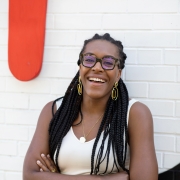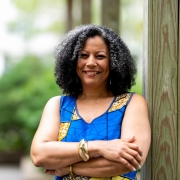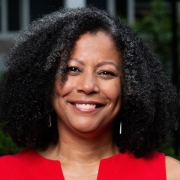NYU Metro Center has a 47-year history of experience providing assistance and mobilizing resources to address a variety of issues related to educational inequity, discrimination of all kinds, and social injustice. This academic year finds this university-based research and professional learning services center working as diligently as ever to uphold the promise of public education and ensure that all of our children have the opportunity to thrive.
While efforts to dismantle public education are not new to the United States, 2025 finds an increased number of attacks being launched to weaken and curtail the inclusive pedagogies shared in K-12 schools across the country. These anti-equity campaigns have sought to restrain classroom discussions pertaining to race and the vestiges of white supremacy in America, eliminate discussions of gender and the use of gender-neutral or non-binary alternatives, and diminish the rights of LGBTQIA+ children and educators. From outright censorship and book bans to the “whitewashing” discussions of history in classrooms to removing references to sexual orientation in schools, today’s public school students are being harmed by anti-equity campaigns that seek to subvert public education by eradicating students’ opportunities to learn about the full range of human experiences and ideas.
NYU Metro Center’s resistance to these anti-equity campaigns can be recognized through the extraordinary diligence with which their respective teams work to transform public schools into welcoming, affirming, and healing institutions for each of our children. Here are but a few examples:

Dr. Leigh McCallen, Deputy Executive Director for Research and Evaluation at NYU Metro Center addressed the far-reaching impact of both the U.S. Department of Education’s decision to drop the 2025 National Assessment of Educational Progress (NAEP) for 17-year-olds, as well as the abrupt cancellation of multi-year education research contracts earlier this year. Dr. McCallen shared her perspective on these decisions during an interview with K-12 Dive’s Briana Mendez-Padilla. In the article titled, How will cutting NAEP for 17-year-olds impact postsecondary readiness research, Leigh notes both the potential and shortfalls of utilizing longitudinal research to measure inequity and educational disparities in students. In light of the dismissal of the NAEP Long-Term Trend Age 17 assessment, Dr. McCallen raised concerns about maintaining the two-year NAEP assessments for 9- and 13-year-olds, because their consistency over the years provides significant and useful data points to truly measure and ultimately rectify potential disparities in schools across the country.
Dr. Wenimo Okoya, Director of the Institute for Healing and Belonging in Schools (IHBS) at NYU Metro Center shared her expertise on addressing educational disparities and the harm of trauma on students in a recorded television interview with NY1 Spectrum News. Wenimo’s comments were shared during a NY1 feature segment on a tutoring company working to address the racial education gap. Dr. Okoya, a former middle school teacher, directly addressed the flaws of how our schools are often designed. Wenimo outlined that

…because we design schools, not for cultural affirmation, not for well-being, not for collaboration, we have the results that we do. The problem lies not with our children, but rather with the [unresponsive] orientation of the schools."
Dr. Okoya also underscored the importance of cultivating educational environments "... where all students receive what they need to develop to their full academic and social potential.”
NYU Metro Center activities in support of more equitable educational outcomes extend well beyond media interactions. Metro regularly conducts professional learning programs for teachers and district leaders, as well as informational and best practices sessions for fellow equity advocates, community members, parents, caregivers, and youth. These lasting partnerships take many forms, including workshops and larger education-focused convenings; the annual NYSABE Conference would definitely fall under such a category.
The New York State Association for Bilingual Education, NYSABE, promotes the establishment, maintenance, and expansion of high-quality bilingual education programs for students of diverse cultural and linguistic backgrounds as a means to ensure equitable and enriched educational opportunities for all students. As a partner with NYU Metro Center, NYSABE, led by Executive Director Nancy Villarreal de Adler, is dedicated to fostering linguistic and cultural diversity in education. Together, both institutions collaborate to empower students, families, and educators by affirming the right of every multilingual learner to access high-quality bilingual education that honors their language, identity, and heritage.
The theme for this year’s NYSABE Conference, “Reaffirming Policy to Transform Practice and Action in Bilingual Education,” emphasizes the importance of harnessing the power of effective policy to create meaningful and transformative educational experiences for our students. This three-day gathering focused on sharing innovative strategies and practices that ensure that all multilingual and bilingual learners are equipped with the tools they need to thrive. In her remarks to the NYSABE audience, NYU Metro Center Executive Director Fabienne Doucet raised two key points. The first request made of the NYSABE conference attendees was to keep proper perspective amidst these ongoing anti-equity campaigns. Dr. Doucet directed the audience on how to engage this moment in time.

This is a moment for us to be thoughtful … [as we advocate for] the policies we know lead to the best outcomes for multilingual students, students labeled as disabled, and other [vulnerable] students who… would [otherwise] likely be ignored, erased, or forgotten.”
The second request Dr. Doucet made to the NYSABE Conference audience pertained to the importance of being intentional with their hearts amid the continuous attacks on public education and the historically marginalized children it serves. She asked that each of the NYSABE conference registrants continue their advocacy during these challenging and tumultuous times, and that we

...keep our hearts open to love, open to hope, and ready to reflect on our commitments and put those commitments to action every single day.”
This final request not only concluded Dr. Doucet’s remarks before the NYSABE audience but also served as an impassioned motivational message to the dedicated youth, family/caregivers, and educators supporting this vital social justice movement. This collaboration would not be as successful or impactful if not for the contributions of a great many volunteers, including those belonging to the NYS Statewide Regional Bilingual Education Resource Network (NYS Language RBERN at NYU Metro Center).
This NYU Metro Center subunit, led by Executive Director Ron Woo, graciously lent their collaborative expertise, established best practices, and proven resources to produce the NYSABE Conference. We would like to share a special thank you with each member of the NYS Language RBERN team at NYU Metro Center who has helped to contribute to the success of the NYSABE Conference. Here is a brief list of NYU RBERN participants:
NYSABE Conference Committee Participants
Language Delegate
Nancy King Wang, PhD-Language Delegate
Parent Institute
Ron Woo, JD
Past President Forum & Professional Awards
Student Essay And Art Contest
Workshop & Sessions & Speakers
Language Delegates Panel
Workshop Panel: “Pathways to Bilingual and ENL Teacher Certification for Professionals and Individuals with Foreign Credentials”
Ron Woo, Executive Director, NYU RBERN & Dr, Nancy King Wang, Resource Specialist, NYU RBERN
Workshop Panel: “Trauma informed Care for English Language Learners (ELLs)”
Dr. Nancy King Wang, Resource Specialist; NYU RBERN & Yolanda Delgado-Villao, Resource Specialist; NYU RBERN
Dr. Fabienne Doucet, Executive Director; NYU Metro Center-Offered remarks prior to the Student Performance session.
